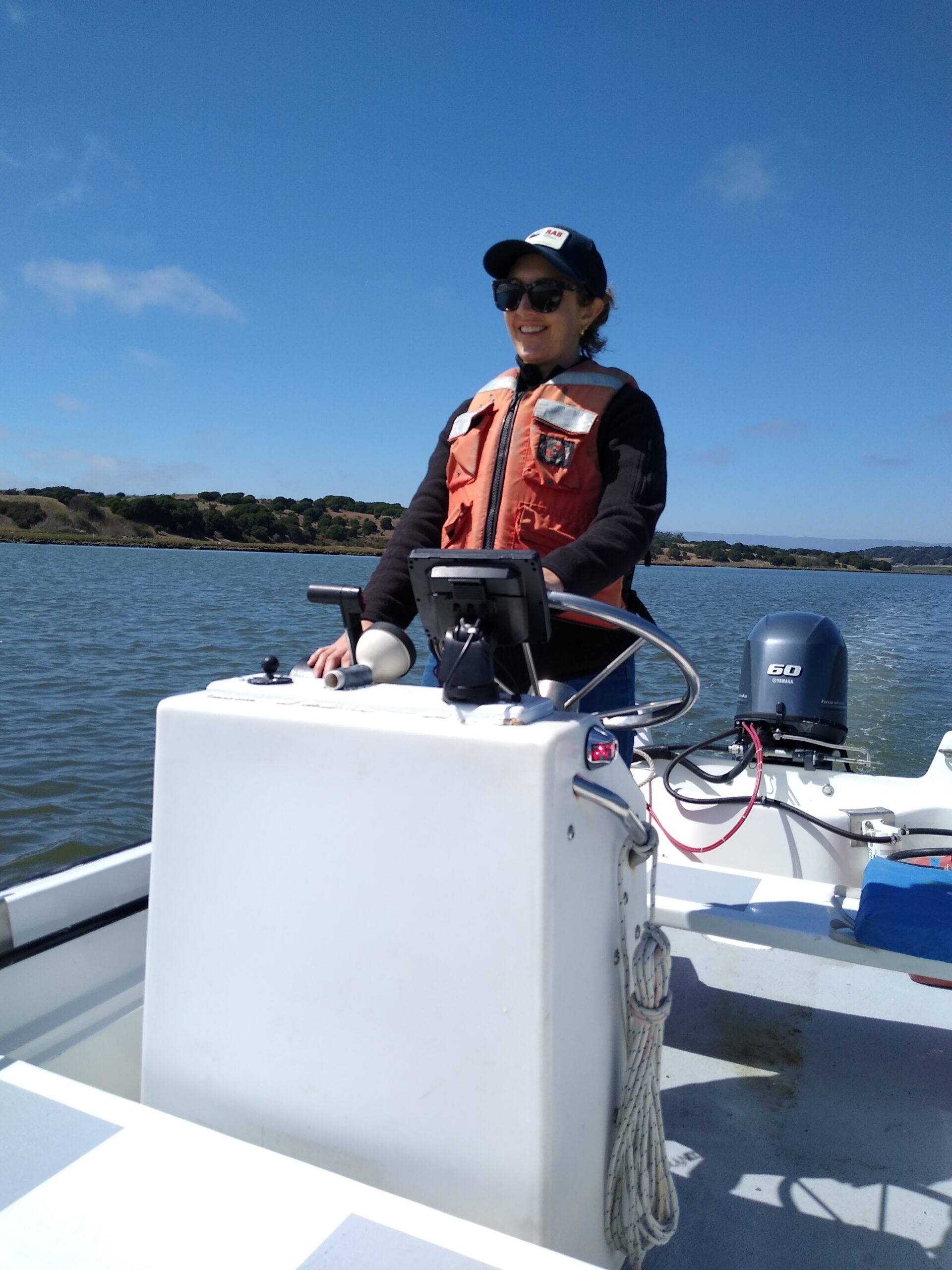Sarah Smith | MLML, SJSU
Presenting: "Ocean Iron Fertilization for Mitigating the Climate Crisis"
Hosted by the Biological Oceanography Lab
MLML Seminar | May 1st, 2024 at noon
Watch the Live Stream here

Abstract:
Increases in atmospheric carbon dioxide levels have led to a global climate crisis, and reduction of fossil fuel emissions is no longer enough to prevent warming and other negative ecosystem impacts. To mitigate the damage, it now imperative to explore mechanisms to remove carbon dioxide from the atmosphere. The ocean has a large capacity to store carbon, exceeding that of the atmosphere by 50 times and that of soils and plants by 15-20 times. Consequently, there are many techniques that are being investigated to explore marine carbon dioxide removal (mCDR). Of these, ocean iron fertilization (OIF), is the most studied – due to extensive field testing of John Martin’s 1990 Iron Hypothesis. However, the use of OIF as a tool for mCDR is controversial, and there are many remaining uncertainties about its efficacy and its potential to impact ocean ecosystems. Due to these (and other) concerns, research evaluating OIF for mCDR was halted ~15 years ago. Today, the urgency of the climate crisis is causing this approach to be revisited. Here, I share a brief history of OIF research, and introduce the current and ongoing efforts of ExOIS (Exploring Ocean Iron Solutions): an organization comprised of oceanographers, international lawyers, and social scientists aimed at developing a strategy to evaluate OIF for mCDR. Plans for the next generation of field studies will be introduced, highlighting what’s new and what remains to be addressed scientifically, before OIF could be considered a viable climate solution or as a tool in the global C market.
Bio:
Sarah is the Biological Oceanography faculty member at Moss Landing Marine Laboratories. She studies the ecology, evolution, and physiology of marine phytoplankton. Phytoplankton are a diverse group of organisms and their photosynthesis fuels marine food webs, shaping biogeochemical cycles of carbon and other important elements (including nitrogen, iron, silica). Sarah’s research is largely focused on diatoms, an important and evolutionarily unique group of eukaryotic phytoplankton that often dominate coastal oceans and other nutrient-rich ocean environments. Diatoms are one of the most well-developed groups of model organisms for molecular studies, with several genomes and genetic tools currently available and Sarah’s research uses a wide variety of traditional and multi-omics tools to better understand the biology of diatoms and other phytoplankton in culture and field-based studies.

